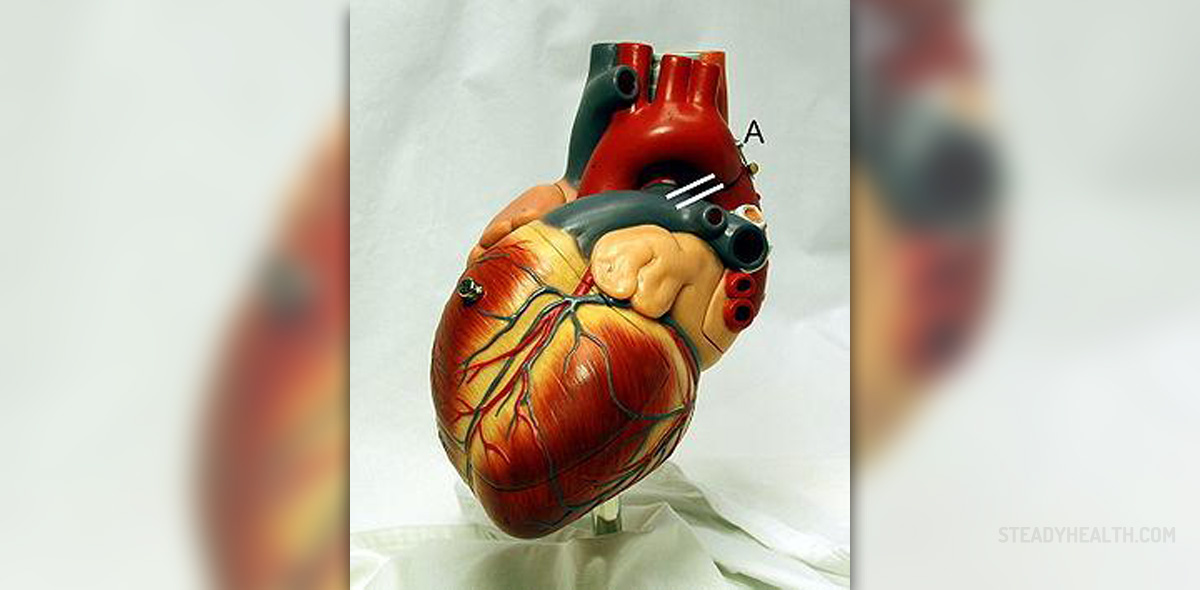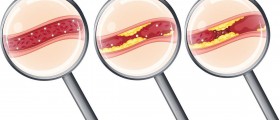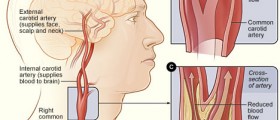
Coronary heart disease is a condition spread throughout the world predominantly affecting adults and elderly individuals. It develops as a consequence of plaque build-up inside the heart arteries (the process of atherosclerosis). Such build-up is gradual, leads to narrowing of the affected blood vessels and may eventually cause complete blockage of the artery i.e. induce heart attack.
Coronary artery disease is in initial stage practically asymptomatic. Only when narrowing starts to interfere in normal blood flow through heart arteries and when the heart muscle becomes deprived from sufficient amount of blood rich in oxygen, one starts to experience symptoms and signs of the disease.
Coronary Heart Disease Causes and Risk Factors
There are many numerous factors which either initiate the process of atherosclerosis or contribute to further plaque build-up. Because of that people have to be familiar with the most significant factors contributing to coronary heart disease and by eliminating these (or bringing them under control) prevent the condition and all its detrimental complications.
Genetics and Gender
It is believed that genetics plays significant role when it comes to coronary heart disease. Children of parents who are suffering from coronary artery disease are at higher risk of developing the condition themselves. They are susceptible to the condition, which does not mean they are going to develop it. They are, therefore, due to pay close attention to all risk factors more than individuals in whom there is no family history of coronary heart disease.
As for gender, coronary heart disease affects more men than women but it is almost equally distributed when women enter menopause.
High Blood Pressure and High Cholesterol
These two are major contributors to coronary heart disease. High blood pressure damages the blood vessels and makes them more susceptible to plaque formation. High cholesterol is actually an initiator of the plaque build-up. If there is too much cholesterol in the blood, it eventually starts to accumulate in the wall of arteries. In case one is suffering from hypertension and high cholesterol at the same time, the risk for coronary heart disease is even higher.
Diabetes
People suffering from diabetes are prone to high cholesterol. Even though their condition is closely related to high level of glucose in the blood, the imbalance in the body caused by the very condition is indirectly associated with accelerated arterial fatty plaque formation.
Obesity, Diet and Exercise
Being obese means that there is excess of fat in one's body. As a result, there are high level of cholesterol, high level of triglycerides and sometimes hypertension present. All these three factors contribute to the onset and progression of coronary artery disease.
Furthermore, unhealthy diet (a diet rich in fats and low in fiber) and complete absence of physical activity (sedentary lifestyle) are powerful contributors to coronary heart disease.
Tobacco
Cigarette smoking, smoking pipes or even chewing tobacco may contribute to narrowing of the heart vessels and additionally help in plaque build-up. Nicotine present in tobacco is also a powerful Vasoconstrictor able to reduce the size of already narrowed arteries.
Stress
Even though there is no direct connection between stress and coronary heart disease, it is shown that when people are under stress, there is prolonged constriction of blood vessels which causes blood pressure to rise. So stress is actually not a direct risk factor but contributes to other coronary heart disease risk factors.

















Your thoughts on this
Loading...